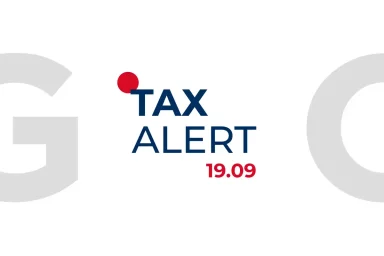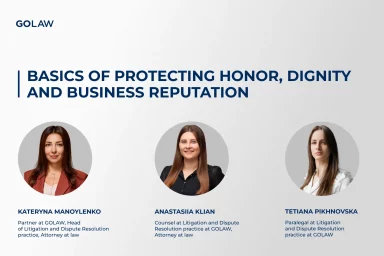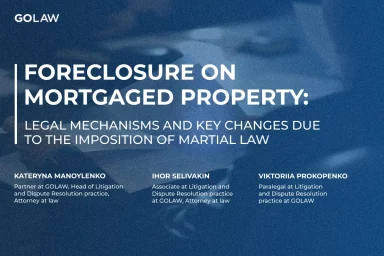Sanctions Disputes in Ukraine: The Legal Dimension of Modern Security
Contents
Since the beginning of armed aggression against Ukraine, sanctions policy has become one of the key tools for protecting national interests.
The Law of Ukraine “On Sanctions” and subsequent regulations created a legal framework for restricting the activities of individuals and companies that directly or indirectly support the aggressor. In 2022, Ukraine introduced a new, unprecedented tool — the confiscation of assets in favor of the state — aimed at enhancing the effectiveness of threat counteraction. At the same time, this presented a challenge for the legal community and marked a new format of judicial practice.
Sanctions aim not only at punishment but also at prevention — that is, limiting the ability to use resources to harm the state.
However, like any legal mechanism, sanctions require clear procedural implementation, appropriate evidentiary justification, and adherence to the rule of law.
Judicial Practice in the Field of Sanctions
Appeals against the decisions of the National Security and Defense Council of Ukraine (NSDCU) on the imposition of sanctions are one of the main areas of judicial review in this field. Although Ukraine lacks a mechanism for automatic judicial review of such decisions, some examples of their analysis by the courts already exist.
In particular, the Supreme Court in case No. 990/176/23 annulled sanctions imposed on a French citizen, a former top manager of an international financial group. This became an important precedent for further cases in which individuals or organizations attempt to challenge NSDCU decisions.
Such decisions are mostly based on the inaccuracy of the information used to impose sanctions or the lack of evidence proving the person’s connection to the Russian aggression. During such proceedings, courts assess whether there are sufficient grounds to impose sanctions on a particular person or organization, whether proper procedures were followed, and whether the sanctions comply with current legislation.
Thus, we see that courts focus in particular on the sufficiency of grounds, adherence to due process, and compliance of the imposed restrictions with legal requirements.
Examples of Supreme Court rulings that have triggered the development of new approaches in practice indicate the Ukrainian legal system’s aspiration to maintain a balance between the protection of national interests and the principles of legal certainty.
Confiscation of Assets for the Benefit of the State
One of the key areas of judicial practice in the field of sanctions is the adjudication of cases involving the confiscation of assets in favor of the state. This mechanism, introduced in 2022, allows the transfer of assets owned by persons linked to national security threats into state ownership. The High Anti-Corruption Court (HACC) plays a central role in shaping this practice.
Since 2022, Ukrainian courts have actively reviewed claims for the confiscation of assets belonging to sanctioned individuals, based on NSDC decrees. Each case requires careful verification of information regarding the origin of the assets, their connection to aggression, and evidence confirming ownership by specific individuals.
Key aspects in such cases include:
- Procedure for asset nationalization. The court carefully examines whether the nationalization violates fundamental principles of international law and Ukrainian legislation.
- Grounds for the claim and proper claimants. Claims may be filed by the Ministry of Justice of Ukraine or other state authorities.
- Assessment of asset ownership. The court must determine that the assets indeed belong to the sanctioned persons and cannot be returned to their rightful owners.
An example of this mechanism’s application is case No. 991/682/25, in which the HACC upheld the Ministry of Justice of Ukraine’s claim to confiscate the assets of the Russian company PJSC “Tatneft named after V.D. Shashin” in favor of the state. This company is one of the largest industrial conglomerates in the oil extraction, refining, and sale sector in Russia. The HACC ordered the confiscation of the corporate rights directly owned by PJSC “Tatneft named after V.D. Shashin,” specifically:
- 100% share in the authorized capital of LLC “TATNEFT-AZS-UKRAINE”;
- 92.98% share in the authorized capital of LLC “KHARKIV-CAPITAL”;
- 88.97% share in the authorized capital of LLC “POLTAVA-CAPITAL”.
Legal Challenges: New Approaches, New Risks
The uniqueness of sanctions disputes lies in the fact that they often involve restricted-access information, including from state and international sources. This imposes additional responsibilities on both state authorities and judges and other participants in the process. On one hand — protection of national security, on the other — the need to ensure fair and transparent proceedings.
Professionally handling such cases requires a deep understanding of both public and private law, international experience, and the ability to work with sensitive information.
Sanctions Compliance: A Key Element of Corporate Strategy
Under strict sanctions regimes, compliance with sanctions legislation has become critically important for Ukrainian and international businesses. As sanctions may be applied not only to individuals but also to companies directly or indirectly connected with sanctioned entities, sanctions compliance is gradually becoming a standard of responsible corporate governance.
An effective compliance system allows companies to:
- timely identify potential risks of interaction with sanctioned persons or structures;
- avoid financial and reputational losses;
- demonstrate transparency and reliability to banks, counterparties, and regulators.
Recommended steps for businesses include:
- regular audits of counterparties and verification of beneficial ownership structures;
- creation of internal policies for checking counterparties for sanctions risks;
- legal support for transactions with a potential international element or involving sensitive sectors.
In today’s environment, compliance is not only a matter of responsibility but also a tool for strengthening business resilience.
Conclusions
Sanctions policy is a vital yet complex legal instrument that requires careful application, clear procedures, and a proper balance between state interests and the rights of the parties involved. Ukrainian judicial practice in this area is still in the making, and every new case contributes to the development of standards.
Legal professionals’ involvement in such proceedings ensures adherence to legal principles and promotes the rule of law even during wartime — when maintaining trust in institutions and legality is especially crucial for societal resilience.

Kateryna Manoylenko
Partner, Head of Litigation and Dispute Resolution practice, Attorney at law
- Contacts
- 31/33 Kniaziv Ostrozkykh St, Zorianyi Business Center, Kyiv, Ukraine, 01010
- k.manoylenko@golaw.ua
- +380 44 581 1220
- Recognitions
- The Legal 500 EMEA 2024
- Who's Who Legal 2022 - 2024

Anastasiia Klian
Counsel, Attorney at Law
- Contacts
- 31/33 Kniaziv Ostrozkykh St, Zorianyi Business Center, Kyiv, Ukraine, 01010
- a.klian@golaw.ua
- +38 044 581 1220
Get in touch
To get a consultation, please fill out the form below or call us right away:Sign up to be aware
New achievements are inspired by information. GO further, don’t miss out GOLAW news and legal alerts
Our expertise
-
- Energy and Natural Resources
- Antitrust and Competition
- Banking and Finance
- Compliance, Corporate Governance and Risk Management
- Corporate and M&A
- Criminal and White Collar Defence
- Defense in Anti-corruption procedures and regulations
- Labor and Employment
- Natural Resources and Environment
- Government Relations (GR)
- Insolvency and Corporate Recovery
- Intellectual property
- International trade
- Legal support of business and private Сlients in Germany
- Litigation and dispute resolution
- Private clients
- Real Estate and Construction
- Restructuring, Claims and Recoveries
- Martial Law
- Tax and Customs
-
- Agribusiness
- Aviation
- Chemical industry
- Engineering, Construction and Building Materials
- Natural Resources and Environment
- Financial institutions
- IT and AI
- Industry and manufacturing
- Healthcare industries, Life sciences and Pharmaceuticals
- Media, Entertainment, Sports and Gambling
- Retail, FMCG and E-Commerce
- Transport and Logistics
We use cookies to improve performance of our website and your user experience.
Cookies policy
Cookies settings







